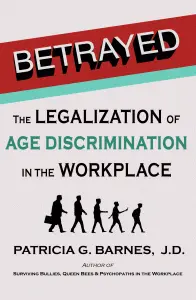Policy Rigged to Protect Employer
Employees today are increasingly being forced to sign one-sided arbitration agreements that are rigged to protect the employer if something goes wrong.
A panel of the U.S. Court of Appeals for the Ninth Circuit in San Francisco this week put its “foot” down by refusing to enforce a take-it-or-leave-it arbitration agreement that Ralphs Grocery, which is part of The Kroger Co. of Ohio, required applicants for employment to sign.
The appeals court said the agreement was both procedurally and substantively “unconscionable” under California contract law. In fact, the panel said, the agreement was unjustifiably one-sided to such an extent that it “shocked the conscience.”
The panel rejected Ralphs argument that the Federal Arbitration Act (FAA) preempts state law and therefore the policy had to be enforced even if it was unconscionable. The appellate panel said its unconscionability holding is not preempted because it applies to contracts generally and does not disproportionately affect arbitration agreement.
“If state law could not require some level of fairness in an arbitration agreement, there would be nothing to stop an employer from imposing an arbitration clause that, for example, made its own president the arbitrator of all claims brought by its employees,” said the panel.
Ralphs had sought to compel individual arbitration of a claim by former Zenia Chavarria, a former deli clerk who filed a class action lawsuit against Ralphs’ alleging violations of the California labor laws. Chavarria had worked at Ralphs for about six months.
The appellate panel cited the following problems with Ralphs arbitration policy:
- Signing the agreement was a condition of applying for employment and was presented on a “take it or leave it” basis.
- The terms of the arbitration agreement were not disclosed to Chavarria until her employment orientation, three weeks after she had agreed to be bound by the policy and after it went into effect.
- The policy’s arbitrator selection process always produces an arbitrator proposed by Ralphs in employee-initiated arbitration proceedings. The policy requires the arbitrator to be a retired state or federal judge and explicitly prohibits the use of an administrator from the American Arbitration Association (“AAA”) or the Judicial Arbitration and Mediation Service (“JAMS”). The court noted that the AAA and JAMS have rules and procedures to select a neutral arbitrator.
- Ralphs’ arbitration policy required the arbitrator impose significant costs on the employee up front and severely limited the authority of the arbitrator to allocate arbitration costs in the award. The arbitrators had to apportion their fees equally between Ralphs and the employee. The court said this arbitrator-fee-apportionment provision had the effect of pricing employees out of the dispute resolution process regardless of the merits of their claim.
The evidence showed that fees for a qualified arbitrator under Ralphs policy ranged from $7,000 to $14,000 per day. Ralphs’ policy requires that an employee pay half of that amount—$3,500 to $7,000—for each day of the arbitration just to pay for her share of the arbitrator’s fee. “This cost likely dwarfs the amount of Chavarria’s claims,” said the appeals court.
Basic contract law holds that contracts can be invalidated for fraud, duress, or unconscionability.
See Chavarria v. Ralphs, No. 11-56673, U.S. 9th Circuit Court of Appeals, Oct. 28, 2013.



Speak Your Mind